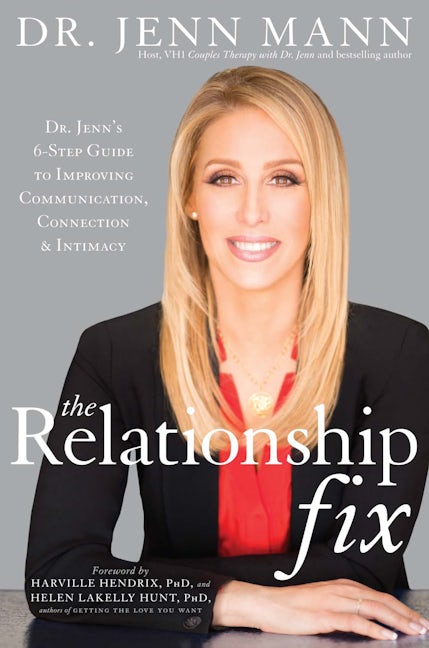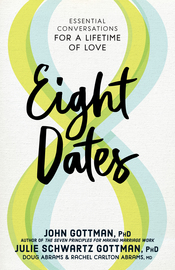Criticism Is the Toxic Habit that Can Slowly Ruin Your Relationship
By Kelsey Borresen — 2019
Experts say this common communication issue can push couples apart.
YOU MIGHT ALSO LIKE
CLEAR ALL
BY TOPIC
BY TEACHER
BY TYPE
FILTER

TOPIC
- Intimacy (49)
- Criticism and Rejection (33)
- Self-Development (25)
- Sex (25)
- Divorce and Breakup (23)
- Neurodiversity (23)
- Self-Discovery (20)
- Conflict Resolution (17)
- Love (15)
- Neuroscience (15)
- Parenting (15)
- Self-Reflection Practices (15)
- Authenticity (13)
- Autism (13)
- Family Dynamics (13)
- Work Relationships (13)
- ADD/ADHD (12)
- Nonviolence (12)
- Self-Expression (12)
- Speaking Your Truth (12)
- Activism/Service (11)
- Leadership (11)
- Resilience (11)
- Self-Limiting Beliefs (11)
- Self-Worth (11)
- Compassion (10)
- Creative Well-Being (10)
- Friendship (10)
- Toxic Relationships (10)
- Trust (10)
- Work Challenges (10)
- Imagination and Creativity (9)
- Mindfulness (9)
- Passive-Aggressive Behavior (9)
- Self-Control (9)
- Emotional and Mental Health (8)
- Empowerment (8)
- Entrepreneurship (8)
- Honoring Emotion (8)
- Negative Self-Talk (8)
- Self-Acceptance (8)
- Self-Love (8)
- Self-Reckoning (8)
- Setting Limits and Boundaries (8)
- Vulnerability (8)
- Withholding (8)
- Forgiveness (7)
- Grit (7)
- Letting Go (7)
- Love Languages (7)
- Masculine/Feminine Dynamics (7)
- New Relationships (7)
- Personal Development (7)
- Self-Actualization (7)
- Spiritual Life (7)
- Transformation (7)
- Well-Being (7)
- Women’s Well-Being (7)
- Anger (6)
- Buddhism (6)
- Bullying (6)
- Confidence (6)
- Connection (6)
- Courage (6)
- Finding Meaning (6)
- Focus (6)
- Goal Setting (6)
- Growth Mindset (6)
- Habits of Mind (6)
- Identity (6)
- Intention (6)
- Presence (6)
- Self-Compassion (6)
- Self-Realization (6)
- Shame (6)
- Spiritual Growth (6)
- Work-Life Balance (6)
- Attachment Theory (5)
- Awareness (5)
- Disconnection (5)
- Dysfunctional Childhood (5)
- Empathy (5)
- Failure (5)
- Fear (5)
- Habit Formation (5)
- Human Potential (5)
- Infidelity (5)
- Inner Strengths (5)
- Mind-Body Connection (5)
- Mindfulness Practices (5)
- Self-Healing (5)
- Self-Reliance (5)
- Spiritual Healing (5)
- Acceptance (4)
- Accepting Love (4)
- Addiction (4)
- Anxiety (4)
- Athlete Well-Being (4)
- Collaboration (4)
- Decision Making (4)
- Ego (4)
- Emotional Intelligence (EQ) (4)
- Happiness (4)
- Inner Life (4)
- Integrity (4)
- LGBTQIA Relationships (4)
- Motivation (4)
- Narcissism (4)
- Perception (4)
- Productivity (4)
- Relationship with Time (4)
- Self-Esteem (4)
- Social Presence (4)
- Soul Mission (4)
- Suffering (4)
- Values (4)
- Work Ethic (4)
- Anger Management (3)
- Cancer (3)
- Child’s Emotional Growth (3)
- Competition (3)
- Curiosity (3)
- Fellowship and Community (3)
- Female Empowerment (3)
- Grief (3)
- Guilt (3)
- Highly Sensitive People (3)
- Humility (3)
- Indigenous Well-Being (3)
- Interdependence (3)
- Joy (3)
- Motherhood (3)
- Offering Support to Others (3)
- Passion (3)
- Peak Performance (3)
- Search for Purpose (3)
- Self-Care (3)
- Social Justice (3)
- Social Psychology (3)
- Stoicism (3)
- Stress Management (3)
- Abandonment (2)
- Adjusting to Parenthood (2)
- Belonging (2)
- BIPOC Well-Being (2)
- Breathwork (2)
- Building Character (2)
- Climate Change (2)
- Codependency (2)
- Cognitive Behavioral Therapy (2)
- Cross-Cultural Dynamics (2)
- Embodiment (2)
- Freedom (2)
- Gender Challenges (2)
- Global Challenges (2)
- Gratitude (2)
- Household Labor (2)
- Inner Peace (2)
- Jealousy/Envy (2)
- Jungian Analysis (2)
- Kids and Sports (2)
- Learning Styles (2)
- Life Challenges (2)
- Loneliness (2)
- Lovingkindness (2)
- Meditation (2)
- Midlife Crisis (2)
- Personality Typing (2)
- Positive Self-Talk (2)
- Problem Solving (2)
- Psychology (2)
- Quantum Physics (2)
- Racism (2)
- Self-Discipline (2)
- Self-Pressure (2)
- Sexuality (2)
- Social Anxiety (2)
- Spiritual Practices (2)
- Spirituality and Health (2)
- Talk Therapy (2)
- Tibetan Buddhism (2)
- Transitions (2)
- Trauma Healing (2)
- Willpower (2)
- Access to Education (1)
- Adaptability (1)
- Addiction Recovery (1)
- Asking for Help (1)
- Awe (1)
- Blended Families (1)
- Body Image (1)
- Body Positivity (1)
- Brain Health (1)
- Buddha Nature (1)
- Challenges with Teens (1)
- Child’s Trauma (1)
- Children’s Well-Being (1)
- Christianity (1)
- Conscious Evolution (1)
- Consciousness (1)
- Cross-Cultural Parenting (1)
- Death or Loss of a Loved One (1)
- Depression (1)
- Dharma (1)
- Diamond Approach (1)
- Diet and Nutrition (1)
- Digital Life (1)
- Domestic Abuse (1)
- Drug Addiction (1)
- Emotional Labor (1)
- Energy Balancing (1)
- Energy Healing (1)
- Enneagram (1)
- Exercise (1)
- Fate (1)
- Gender Identity (1)
- Higher Calling (1)
- Hope (1)
- Illness and Injury (1)
- Imposter Syndrome (1)
- Indigenous Healing Approaches (1)
- Inner Child (1)
- Judaism (1)
- LGBTQIA Sexuality (1)
- Manifestation (1)
- Memoir (1)
- Men’s Well-Being (1)
- Neuro-Linguistic Programming (1)
- Optimism (1)
- Patience (1)
- Performance Anxiety (1)
- Physical Health (1)
- Play (1)
- Positive Thinking (1)
- Psychedelic Journey (1)
- Psychology and Spirituality (1)
- Racial Healing (1)
- Raising Daughters (1)
- Regret (1)
- Relationship with Money (1)
- Retirement (1)
- Ritual (1)
- Science and Spirituality (1)
- Sexual Health (1)
- Shadow (1)
- Sleep (1)
- Social Responsibility (1)
- Spiritual Awakening (1)
- Spiritual Development (1)
- Spiritual Fasting (1)
- Stress (1)
- Subconscious (1)
- Sustainability (1)
- Sutras (1)
- Taoism (1)
- The Divine (1)
- Unfulfilled Career (1)
- Visualization (1)
- Whiteness (1)
- Wholeness (1)
- Yin/Yang (1)
- Young Adult Well-Being (1)
- Youth Activism (1)
- Zen Buddhism (1)
FILTER

TEACHER
- Helen LaKelly Hunt (10)
- Helen Fisher (8)
- Julie Schwartz Gottman (8)
- C. S. Lewis (7)
- Gary Chapman (7)
- Stan Tatkin (7)
- don Miguel Ruiz (5)
- Gay Hendricks (5)
- Marshall Rosenberg (5)
- Ramani Durvasula (5)
- Brendon Burchard (4)
- John Bradshaw (4)
- Kathlyn Hendricks (4)
- Russell Brand (4)
- Terry Real (4)
- Brené Brown (3)
- Elizabeth Lesser (3)
- Gary Zukav (3)
- Iyanla Vanzant (3)
- Jay Shetty (3)
- John Welwood (3)
- Robert Augustus Masters (3)
- Terri Cole (3)
- Thich Nhat Hanh (3)
- Alain de Botton (2)
- Bruce Lipton (2)
- Daniel Amen (2)
- Debbie Ford (2)
- Eckhart Tolle (2)
- Elaine Aron (2)
- Lewis Howes (2)
- Lori Gottlieb (2)
- Lorin Roche (2)
- Marcus Aurelius (2)
- Marie Forleo (2)
- Prince EA (2)
- SARK (2)
- Shefali Tsabary (2)
- Simon Sinek (2)
- Tara Mohr (2)
- Tony Gaskins Jr. (2)
- Virginia Satir (2)
- A. H. Almaas (1)
- Adam Grant (1)
- Amishi Jha (1)
- Amy Morin (1)
- Angela Duckworth (1)
- Brian Tracy (1)
- Byron Katie (1)
- Chalene Johnson (1)
- Chan Khong (1)
- Chip Conley (1)
- Daniel Goleman (1)
- Danielle LaPorte (1)
- Deepak Chopra (1)
- Diane Ackerman (1)
- don Jose Ruiz (1)
- don Miguel Ruiz Jr. (1)
- Dorothy Firman (1)
- Edward Hallowell (1)
- Edward Hoffman (1)
- Elizabeth Gilbert (1)
- Frederic Luskin (1)
- HeatherAsh Amara (1)
- Jack Canfield (1)
- James Hollis (1)
- Jeff Foster (1)
- Jetsunma Tenzin Palmo (1)
- Joseph Goldstein (1)
- Judith Orloff (1)
- Judson Brewer (1)
- Karen Casey (1)
- Karen Johnson (1)
- Kim Eng (1)
- Lodro Rinzler (1)
- Louise Hay (1)
- Marianne Williamson (1)
- Martin Luther King Jr. (1)
- Matt Kahn (1)
- Maya Angelou (1)
- Melanie Joy (1)
- Noah Elkrief (1)
- Oprah Winfrey (1)
- Oshoke Pamela Abalu (1)
- Otto Scharmer (1)
- Rainer Maria Rilke (1)
- Resmaa Menakem (1)
- Richard Bandler (1)
- Rick Hanson (1)
- Rob Bell (1)
- Robert Bly (1)
- Rumi (1)
- Rupi Kaur (1)
- Sadhguru (1)
- Stephen Covey (1)
- Susan Piver (1)
- Sylvia Wetzel (1)
- Ta-Nehisi Coates (1)
- Tara Brach (1)
- Thomas Moore (1)
- Thubten Chodron (1)
- Tony Robbins (1)
- Wim Hof (1)
- Yung Pueblo (1)
- Zainab Salbi (1)










